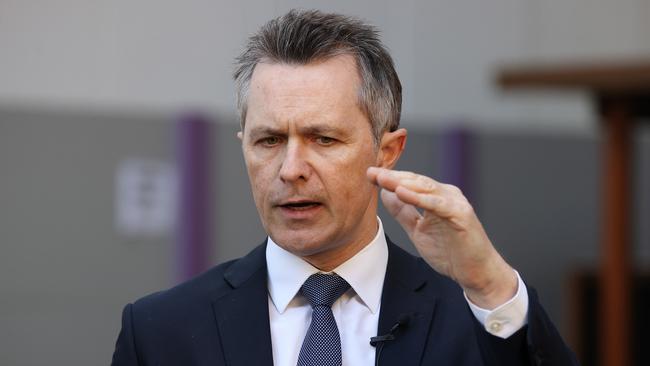University review calls for major expansion to meet skills needs
The biggest university review in 15 years calls for a major boost to student places and a suite of reforms including changes to HECS to ease student debt.

The biggest review of tertiary education in 15 years has called on the Albanese government to double the number of university places in the next 25 years, reduce the high fees students pay in some subjects and reform the HECS loan scheme to ease the financial impact on graduates.
The government’s Universities Accord review, released on Sunday, sets an ambitious agenda for higher education which will cost the government tens of billions of dollars over the next 25 years if fully implemented.
The review says high university fees of over $16,000 a year in some fields – including humanities, communications, and other society and culture subjects such as human movement – should be reduced.
It also urged reforms to HECS to ease the effect high inflation has on increasing the amount students owe and to reduce the financial impact on HECS debtors when their income first hits the loan repayment threshold.
The report also says banks lending practices should be reviewed so people don’t have their home loan borrowing capacity unduly affected by HECS debt.
The review panel, headed by former NSW chief scientist Mary O’Kane, makes 47 recommendations for reforming tertiary education, aimed at dramatically increasing the number of Australians who continue education after finishing school.
The review recommends a goal of having 80 per cent of working age Australians with at least one tertiary qualification (vocational or higher education) by 2050 compared to 60 per cent at the moment.
It urges the government to set an achievement target of having 55 per cent of 25 to 34 year olds holding a bachelor degree or above by 2050, compared to 45 per cent now. This will require a doubling of Commonwealth supported university places for domestic students from 860,000 in 2022 to 1.8 million in 2050.
Additionally the report recommends that 40 per cent of 25 to 34 year olds should hold a vocational or technical qualification by 2050 (with some people holding both these and a higher education qualification).
The review says universities should get more government funding for educating students with higher needs, such as those from low socio economic status backgrounds, from regional and remote areas, and First Nations students.
Education Minister Jason Clare strongly backs increasing the numbers of disadvantaged students in university.
“The only way that we’re going to have enough people with the skills we need to build the businesses and the jobs in the next few decades is if people from poor backgrounds, the outer suburbs and from the regions, get a crack at university,” Mr Clare told The Australian on Saturday.
The Accord review – which is the most comprehensive report on tertiary education since the Bradley review of higher education in 2008 – also calls for more innovative types of courses such as micro-credentials and degree apprenticeships, payments to students for compulsory internships, free university preparatory courses, higher living allowances for needy students, better recognition of prior learning for people starting qualifications, and a “jobs broker” to help students find part-time jobs while they are studying in the area of their course.
It also calls for a new statutory authority, the Australian Tertiary Education Commission, to oversee higher education, and eventually the entire tertiary education system including vocational education.
And it recommends a boost to research funding so that universities don’t have to pay hidden costs when they win government grants, as well as higher stipends for research students.
The review urges the government to set a medium and long-term target to raise overall research and development spending as a percentage of GDP which, it says, will ensure Australia “competes more effectively in the global knowledge economy”.
Mr Clare said he could not, at the moment, commit to any of the review’s recommendations. He said the government would respond to the Accord review “in the next few months”.
Universities Australia chair David Lloyd welcomed the review saying that its recommendations “underscore the need for a high-functioning university system”.
“It’s clear the (review) panel has considered multi-generational reforms that require commitment from successive governments, and we urge the serving and all future governments to stay the course,” Professor Lloyd said.
Australian Technology Network of Universities chair Harlene Hayne said she looked forward to seeing the government’s response to the review.
“If we believe that education transforms lives and economies then this is the road map for our nation to tackle this on a very broad scale,” Professor Hayne said.
RMIT University vice-chancellor Alec Cameron, whose university teaches in both the higher education and vocational education sector, welcomed the review’s emphasis on bridging the “historic divide” in which higher education concentrated on teaching knowledge and vocational education focused on teaching skills.
“Right across both domains the need is for both skills and knowledge,” he said.
Professor Cameron welcomed the review’s focus on new ways of delivering teaching such as degree apprenticeships.






To join the conversation, please log in. Don't have an account? Register
Join the conversation, you are commenting as Logout